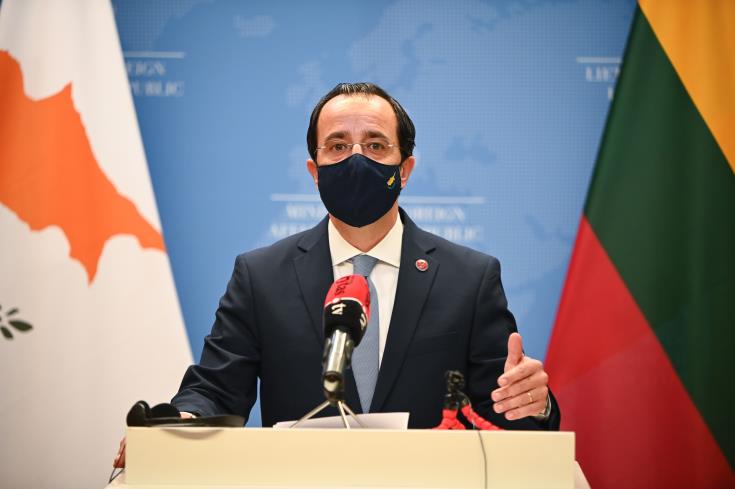Cyprus Foreign Minister Nikos Christodoulides believes a wind of change is sweeping across the Eastern Mediterranean and wider Middle East, as like-minded countries come together to promote cooperation and stability.
He said it was of utmost importance for the EU to support these efforts, be more actively engaged in the region, and not merely follow and react to developments.
“Cyprus, and Greece and other member states, are constantly making this point in Brussels, that there is a need for more engagement, more meaningful support of the EU in the region.
“Afghanistan is creating additional challenges we will all have to face, and being limited to an approach that only reacts to events unfolding is simply not enough; it doesn’t serve the interests of the region nor the EU.”
He was speaking at a panel discussion entitled “Mediterranean: A Geostrategic Chessboard” at the Bled Strategic Forum in the Slovenian town with the same name.
Other speakers at the panel discussion included Foreign Ministers of Spain, Malta, Greece, Slovenia, and Portugal.
Christodoulides said that enhancing ties with countries in the region such as Greece, Israel, and Egypt is one of the pillars of Cyprus foreign policy.
“We are investing political and diplomatic capital in the region because we believe in the region’s increasing geostrategic importance, which relates not only to its challenges but also to the promises it holds.”
Examples given for the wind of change in the region is the energy forum established in Cairo (with the participation of Egypt, Cyprus, Israel, Palestine, Jordan, Italy, France, with the US as an observer, and the creation of a regional training centre for security following an agreement between the US and Cyprus.
“This change started unfolding a few years ago with smaller, yet bold steps, triggered initially by the discovery of hydrocarbons in the maritime zones of the countries in the region.
“These discoveries brought countries of the region together, guided by international law and good neighbourly relations to delimit their seas.”
Christodoulides said that since 2014, Cyprus, Greece, Israel, Egypt, Jordan, Lebanon, Palestine, the UAE, and other countries came together and formed cooperation mechanisms that over the last years have gained significant momentum.
They have expanded into areas of security, environment, climate change, education, and innovation.










